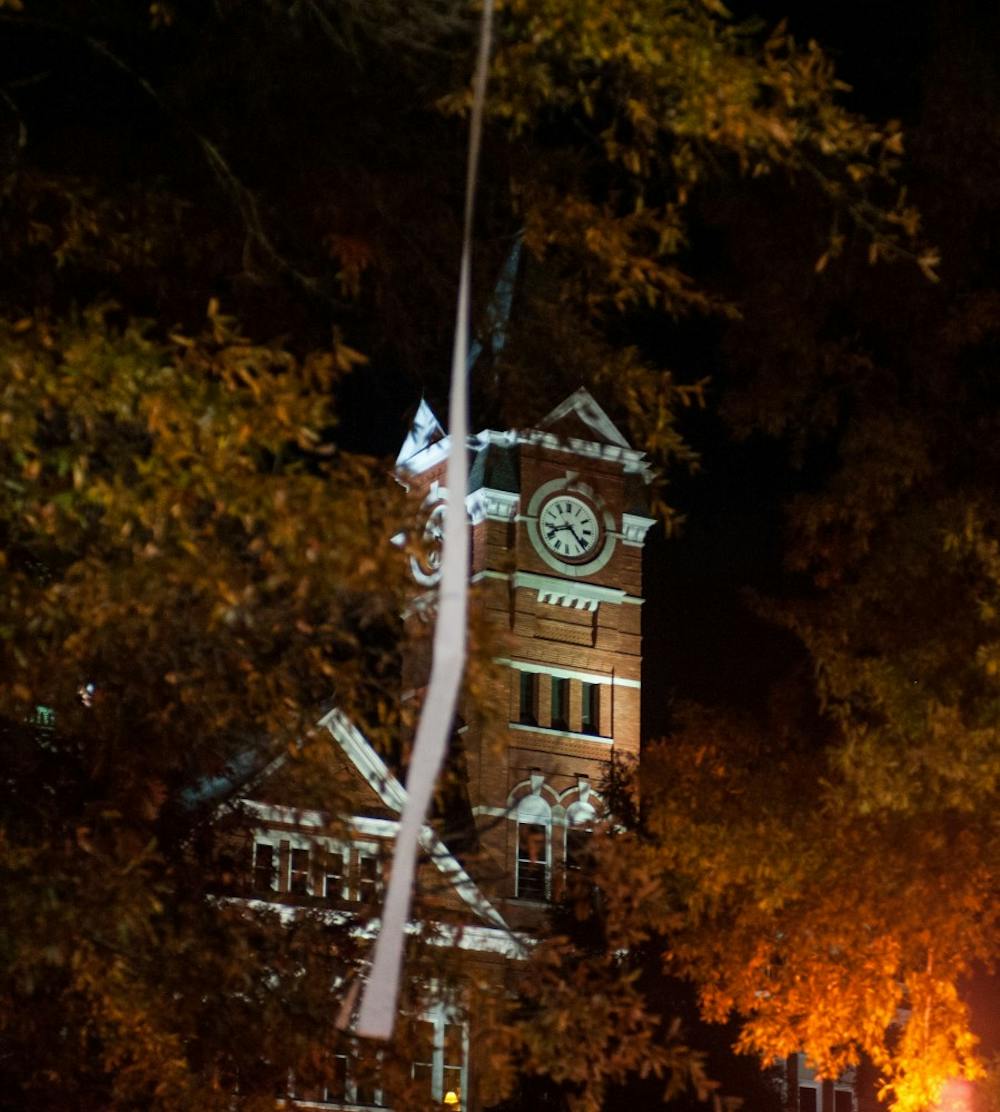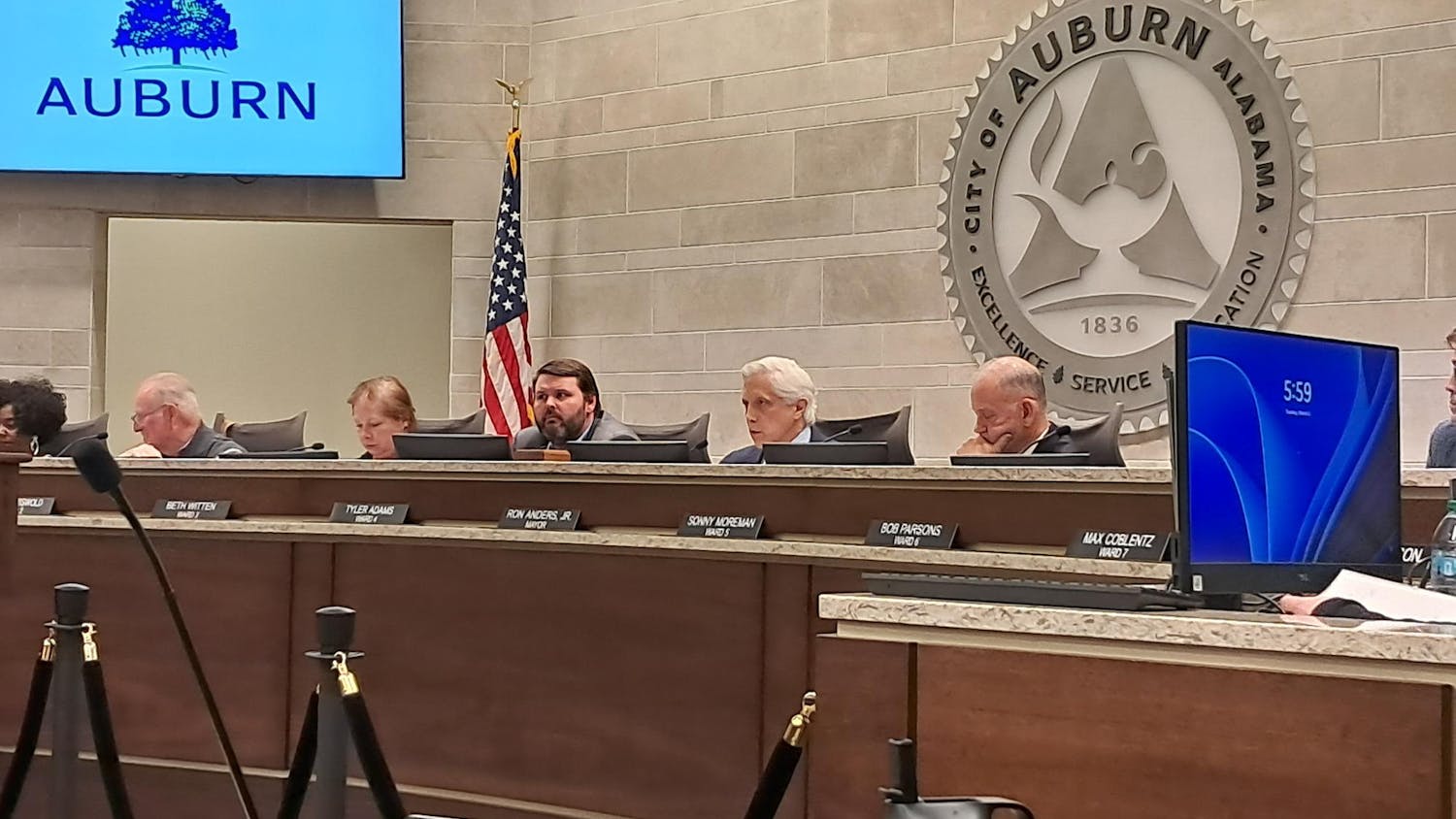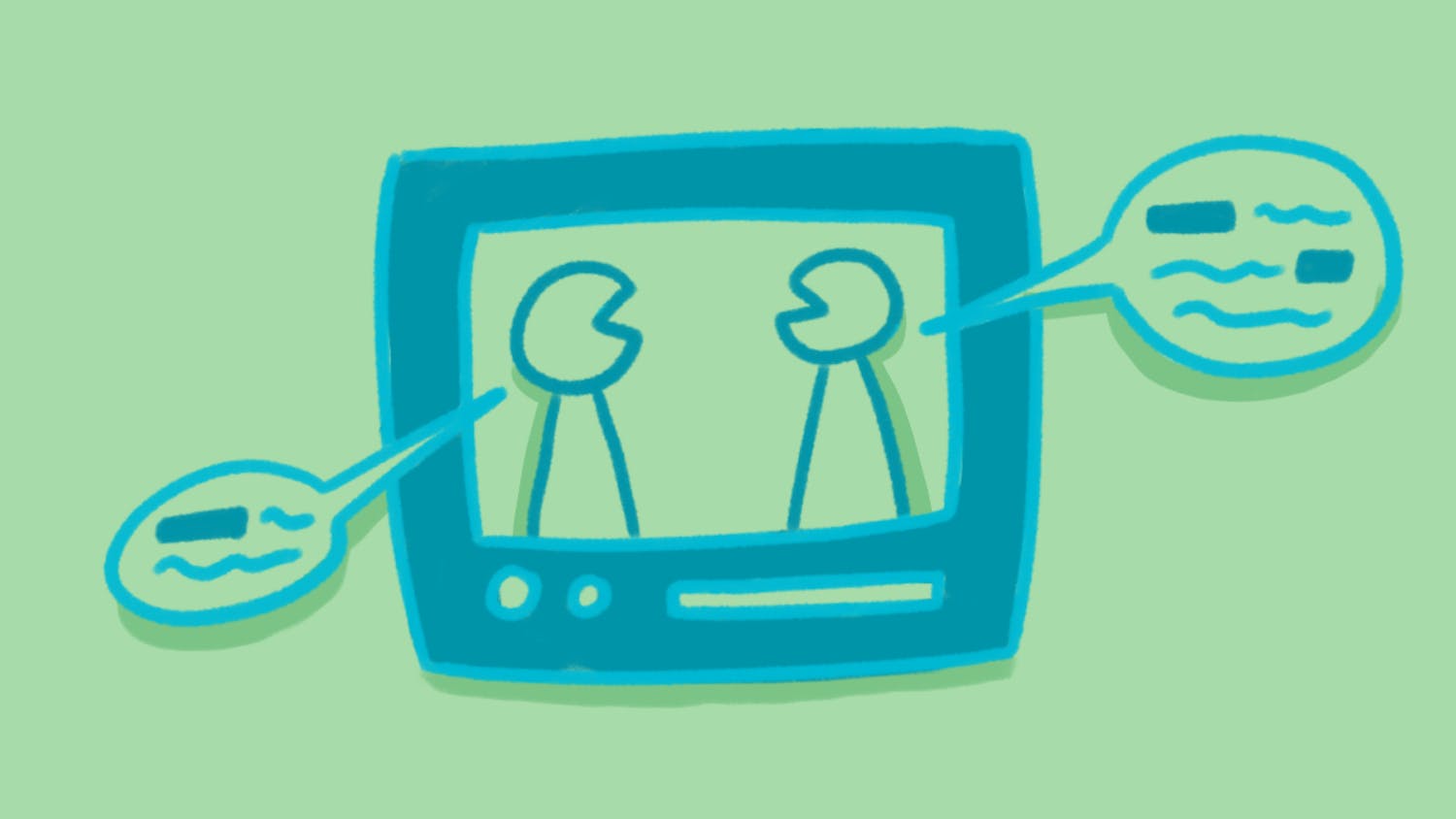On Nov. 20, the Auburn community received an email alert via Auburn University Campus Safety & Security about the discovery of a noose in a residence hall on campus — an event also covered by The New York Times.
The AU Campus Safety & Security response linked this symbol to the history of racial violence in the United States. Even as we appreciate that AU Campus Safety & Security followed protocol in addressing an event that threatened the security of people on campus, this response alone does not replace a statement that addresses the root of this issue or the trauma it has inflicted on Black folks in and beyond the Auburn community.
It does not ensure similar acts will not occur again, nor does it acknowledge the place and the role of anti-Blackness in Auburn University’s institutional legacy and the history of lynching in the South.
A group of Black faculty have recently published a letter in The Auburn Plainsman where they note the terrorizing effect that symbols such as these can have, especially due to their historical status as rituals of hate. As a group of faculty, staff and students who are committed to the critical study of education and to understanding how educational agents and institutions contribute to systems of oppression including anti-Blackness, we believe it is important to address this incident, and we echo this response as we strive to stand in solidarity with Black students, staff and faculty.
We call on Auburn University to take actions to address this issue, including a public statement that denounces anti-Black racism, including the specific act of racial hatred and terror from Nov. 20.
Most importantly, any response in the absence of tangible and fiscal resources devoted to supporting the healing of racial trauma for Black folks at Auburn University is incomplete and inadequate. In addition to a focus on healing for Black faculty, staff, and students, the University community as a whole must also focus on antiracist healing, to include the education of white faculty, staff and students and an explicit acknowledgement of how the role of whiteness, both at individual and collective university levels, plays in perpetuating racist anti-Black ideologies.
Furthermore, it is necessary for white folks at Auburn University to engage in self-reflection, accountability and action in addressing the ongoing legacies and effects of white supremacy, including but hardly limited to their own position and complicity.
Failure to do so is to condone said supremacy.
A few weeks ago, we wrote a similar letter in response to a Plainsman article regarding the oppressive campus climate experienced by LGBTQ+ students, staff and faculty at Auburn. As a working group, we recognize that our collective public response was not as immediate to this event as it could have and should have been.
We share this fact in the spirit of transparency and in acknowledgement of our need to continually engage in self-reflection and accountability about the ways that our failure to offer an immediate response to this specific incident serves to perpetuate white supremacy on campus. We too have work to do to ensure our community of critical scholar activists is not silent or complicit in the face of anti-Blackness.
As a group, we have crafted a list of action items that we believe are important next steps to address the long-standing culture of anti-Blackness and white supremacy at Auburn University. We urge the consideration of these action items in the context of multilayered and intersectional oppression, which affects identity groups in different ways such as Black women, Black queer and trans people and Black people with disabilities.
You will find that the list below includes action items that we see necessary to address at Auburn University, including actions that the Critical Studies Working Group as a collective commits to take. We are publishing this list in The Auburn Plainsman as a way to keep ourselves and the institution that we love accountable to create a community where all students can thrive.
This is an invitation for all to contemplate and take ownership of their individual responsibility in deconstructing oppressive legacies.
We call on Auburn University to do the following:
● Issue a public, immediate statement, denouncing the noose found in a student residence hall, a hate act used to instill racial terror, fear and trauma for Black students, staff, and faculty.
○ This statement should affirm Auburn University’s commitment to serving and affirming Black students, staff, and faculty.
○ Additionally, the statement should outline how Auburn University is prepared to engage in action steps to address the institution-wide legacies of anti-Black racism.
● Conduct a series of listening sessions, in multiple formats, for Black students, staff, contracted employees, and faculty to share their fears and concerns about this specific hate act and anti-Black racism on campus, hosted by a collaboration of institutional offices and organizations.
○ Document and share with the campus community themes that emerge from listening sessions to develop initiatives to address these issues.
● Implement workshop series to educate white students, staff and faculty about the histories of anti-Black racism and the continuation of these oppressive ideologies and behaviors on campus.
● Fund the proposed Center for Reparative Justice, a collaboration between Tuskegee University and Auburn University that aims to tangibly and meaningfully address the legacies of slavery and Jim Crow in Alabama through research, commemoration, and community empowerment.
● Create institutional structures that show explicit and sustained attention to equity and justice-oriented scholars, especially scholars from minoritized groups, during future faculty job searches.
○ This same attention should also be given in staff and administrator searches as well.
○ Positions should be created with salary and resource compensation levels that meet or exceed regional norms and are sufficient to recruit and retain these employees.
● Direct additional funding for student groups focusing on equity and justice work and marginalized communities.
● Direct additional funds for faculty work such as research and outreach focusing on equity and justice work and minoritized communities.
The Critical Studies Working Group commits to do the following:
● Continue offering coursework specific to race, racism and whiteness in education.
○ Adopt and model anti-racist pedagogies in our classrooms, including but not limited to explicitly identifying structures and practices that reinforce whiteness and to center Black scholars and knowledges in our classrooms and syllabi.
● Work in solidarity with communities of Black faculty, staff and students to identify paths for advocacy/support.
● Work alongside student organizations, such as the Black Graduate and Professional Student Association, to support and help coordinate Black Lives Matter at Schools Week and other racial conscious awareness events.
● Generate a public listing on our website about ways that the Critical Studies Working Group works toward equity and inclusion for people of color. This list will include links to resources we have created or collected that will be freely available.
● Commit to individual professional development in racial justice scholarship wherein whiteness is identified and interrogated.
● Contingent upon additional support from the College of Education, the Critical Studies Working Group will contribute to these initiatives by:
○ Planning and implementing a symposium on anti-Black racism in collaboration with Black faculty, staff, and students.
○ Inviting racial justice scholars of Color to offer distinguished lectures.
○ Facilitating undergraduate book clubs on How to Be An Antiracist by Ibram Kendi.
Signed,
Carey E. Andrzejewski | Associate Professor of Educational Foundations
Hannah Baggett | Assistant Professor of Educational Research
Mike P. Cook | Assistant Professor of English Education
Sara B. Demoiny | Assistant Professor of Elementary Education
Antonio Duran | Assistant Professor of Administration of Higher Education
Crystal Garcia | Assistant Professor of Administration of Higher Education
Evelyn A. Hunter | Assistant Professor of Counseling Psychology
Alfredo F. Palacios | Assistant Professor of Counselor Education
Laura Parson | Assistant Professor of Administration of Higher Education
Karley A. Riffe | Assistant Professor of Administration of Higher Education
Ryan Schey | Assistant Professor of English Education
Kamden K. Strunk | Associate Professor of Educational Research
Nancy Thacker | Assistant Professor of Counselor Education
Leonard Taylor | Assistant Professor of Administration of Higher Education
Do you like this story? The Plainsman doesn't accept money from tuition or student fees, and we don't charge a subscription fee. But you can donate to support The Plainsman.





